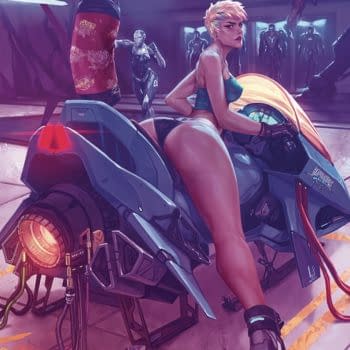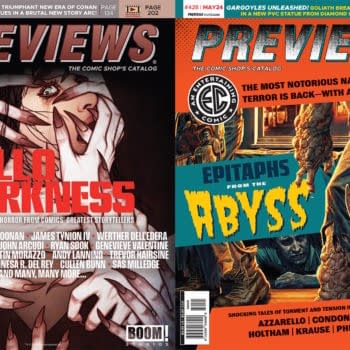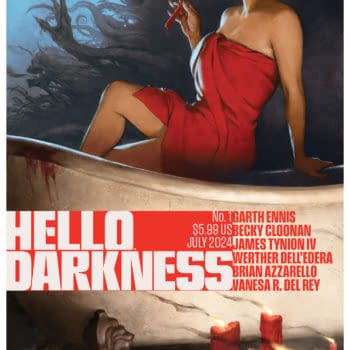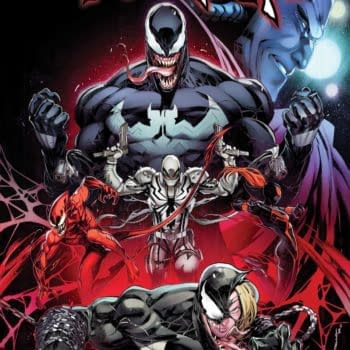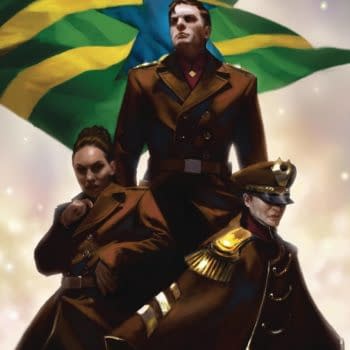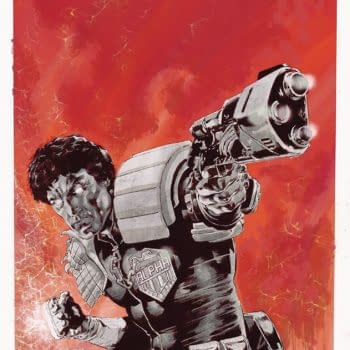Posted in: Look! It Moves! by Adi Tantimedh, Recent Updates | Tagged:
Look! It Moves! #11 by Adi Tantimedh: When Your Superpower Is… IRONY!
So Rich announced the coming premiere of the UK teen superhero show THE MISFITS this week, and this got me to thinking about how UK TV has hopped on the superhero bandwagon, late to America's party, as usual.
While superhero movies now provide the box office lifeblood to ensure Hollywood's survival, the UK Film and TV industry has been much slower at embracing the genre, generally for good reason. For starters, superhero movies are way too expensive for the British Film Industry to make. Second, the superhero is not a native genre in British Pop Culture. There's a sense that it's something juvenile and silly. There is no iconic superhero character in the history of British comics, the stalwarts were adventurers like Dan Dare and Doctor Who. Marvelman was an overt rip-off of Captain Marvel and would have faded into obscurity if Alan Moore hadn't written his 80s reboot that, along with WATCHMEN, helped herald the Grim-n'-Gritty phase of superhero comics in the decades after. The biggest British pop hero is James Bond, who is a bastard. Whenever British comics tackled characters with superpowers, they not only seldom wore tights and capes, but were also often very strange anti-heroes like The Steel Claw, Robot Archie or amoral arch-criminal The Spider. The other touchstone for British adventure comics has been the violent and gleefully mean-spirited satire of 2000AD. No one ever really took Marvel's Captain Britain that seriously, not even Alan Moore or Jamie Delano when they wrote him. The most famous British comic character right now is Judge Dredd, a fascist copper from a satirical future America as created by Brits (yeah, okay, one of them, John Wagner, is a transplanted American immigrant to Britain, but you know what I mean).
There's a streak of skepticism in the British psyche that makes it hard to accept a superhero at face value. There's always a sneaking suspicion that a superhero isn't as pure or wonderful as he's made out to be. And Brits always found the costume silly. Outside of comics geeks, the reference point the majority of British people have for superheroes is the silly, campy BATMAN TV series of the 1960s. Essentially, the British regard superheroes as Twats in Tights, or T.I.T.S. for short. Pat Mills and Kevin O'Neill made their feelings clear about superheroes in MARSHALL LAW, which is far more merciless and hate-filled than Garth Ennis' much softer THE BOYS will ever be. Even when Neil Gaiman and a stable of British Science Fiction and Fantasy writers decided to launch a British answer to George R. R. Martin's WILD CARDS books in the 80s, they came up with TEMPS, which took the position that having superpowers in Britain would be a mundane and rather embarrassing position to be in.
Now, I'm not talking about current British comics writers, many of whom who started writing since the 1980s are unabashed DC and Marvel fans and have been more than happy to start writing for DC and Marvel. I'm talking about British TV writers. Not unlike Hollywood, many TV writers in Britain under the age of 45 have grown up reading American comics and those written by the likes of Alan Moore on top of British TV. So when they start to dip their toes in the superhero genre, they invariably fall into writing about T.I.T.S. as well. Deep down, they can't shake the realization that anyone who would choose to dress up in tights and wear their underwear on the outside has got to be cracked or fucked in the head somehow. Is it any surprise that in Britain, the activist group Fathers for Justice, a sad collection of divorced man-children campaigning for equal divorced-men rights goes around staging protests where they dress up as Spider-Man, Robin and Batman? I guess being taken seriously was ruled out as a mission goal very early on. Do they think their kids would want to see them now that they're a real-life bunch of T.I.T.S.?
Since British TV became ruthlessly market-driven in the 1990s, everything has to be derivative of something else, and the first example of superhero TV from that period was MY HERO, a soul-killingly unfunny rip-off of MORK AND MINDY where the quirky alien was in fact a superhero in cape and tights, in a world where nobody spoke or behaved like a recognizable human being from real life.
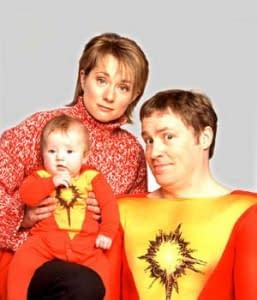
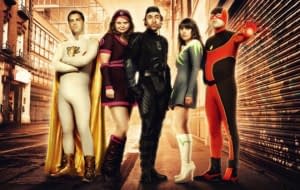
Now I'm off to grab the demo for BATMAN: ARKHAM ASYLUM to play Batman as incompetently as possible so that he'll get killed at every turn. It should take me five, ten minutes, tops.
Getting Batman killed at lookitmoves@gmail.com
(c) Adi Tantimedh






